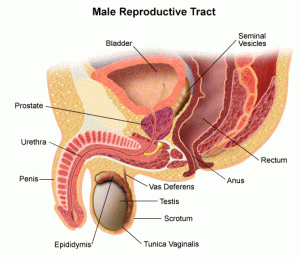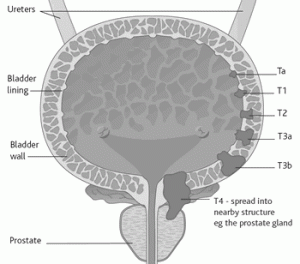One of the most varied fields of surgery, urology treats all conditions associated with the prostate, bladder, and kidneys. It is an exciting field, and urologists like Dr Homi Zargar and his team here at Specialists Melbourne have been responsible for pioneering innovative endoscopic and fiberoptic techniques. We’re incredibly proud to extend these services to our patients, providing the very best care for those suffering from incontinence, infertility, cancer, impotence, and more.
Prostate Cancer
Each year, over 12,000 Australian men are diagnosed with prostate cancer, nearly half of them are less than 70 years old. With as many as 2,700 dying annually from the disease, it is one of the most common cancers in men and the second biggest killer after lung cancer.

Prostate Enlargement
Prostate enlargement is a common condition that occurs in almost 50% of men over the age of 50. The severity of the condition varies between individuals, but it can cause discomfort by obstructing urine flow.
A simple operation, TURP (transurethral resection of the prostate) is a routine procedure that uses fiberoptic telescopes and videocamera imaging to provide relief to men of all ages.
Bladder Cancer
Bladder cancer is typically diagnosed in patients between 50 and 80 years of age. It varies in severity, but a diagnosis needn’t be life threatening. In fact, 75% of new cancer diagnoses are superficial and involve tumours located on the inside of the bladder; these are at low risk of spreading to the muscle or progressing to metastatic disease.
What are the risk factors for bladder cancer?
- Smoking.
- Environmental factors, including exposure to cyclophosphamide, petrochemicals and textile dyes.
- Previous schistosomiasis infections.
- Past exposure to pelvic radiotherapy.
Signs and symptoms of bladder cancer
Blood in the urine (haematuria) is the most common symptom of bladder cancer, it may be visible to the naked eye or present in such small quantities that it requires laboratory tests to confirm. The amount of blood should not be considered an indication of the severity of the cancer, and patients should note that bleeding might not be constant and may even appear to stop for a time.
Alternatively, patients may feel a burning sensation when they pass urine, pain in the lower back or an urgent need to urinate more frequently. If you are concerned about your health, please talk to our friendly staff, who will be happy to arrange for you to see a Melbourne urologist.
How is bladder cancer diagnosed?
A diagnosis might require an ultrasound, CT scan or urine analysis to confirm the presence of lesions. Once confirmed, your urologist will perform a cystoscopy (an examination of the bladder with a telescope) and resect the tumour down to the muscle wall. This resected tissue will then be sent for histological analysis in our on-site pathology lab to determine the stage of the cancer.
Staging: The TMN system
Staging describes the severity of the cancer and has important implications for treatment and overall outcomes.
 The TMN staging system is based on:
The TMN staging system is based on:
- T: Tumour is contained in the bladder.
- M: The tumour has spread outside the bladder.
- N: The tumour has spread to the lymph node.
Transitional cell carcinoma is further classified by three levels, which describe the aggressiveness of the disease:
- Ta is contained within the bladder lining.
- T1 has spread to the bladder wall.
- T2 has spread to the muscle of the bladder wall.
- T3 has invaded the fat surrounding the bladder.
- T4 has spread to nearby organs.
Most bladder cancers are caught at the Ta or T1 stage and have not spread outside the bladder yet. Only 10-20% of superficial cancers progress to T3 and beyond, although ongoing treatment is required to prevent resected tumours from reoccurring. Your urologist will discuss your treatment plan with you.
Kidney Cancer
Most kidney tumours (80%) are malignant and typically present as renal cell carcinoma. Commonly associated with smoking, these tumours are found in the lining of the tubules. Symptoms may include lower back pain, fatigue, fever, blood in the urine or anaemia.
If you think you are at risk from this disease, or are concerned about the health of your kidneys, please book an appointment with Dr Zargar, who will be able to provide a diagnosis and advise on the best course of  treatment.
treatment.
Kidney Obstructions
Urinary stones
Urinary stones are commonly associated with urinary infections, congenital kidney abnormalities, poor diet and a number of medical conditions. They may occur in the bladder, kidney or ureter, blocking urine flow and causing severe pain in the groin or abdomen.
Uteropelvic junction
A uteropelvic junction (UPJ), is a blockage between the kidneys and the ureter (the tube that carries urine to the bladder), it may be caused by kidney stones, infection or enlarged blood vessels.
How is a kidney obstruction diagnosed?
The method of diagnosis will depend on your age; babies can be diagnosed with an antenatal ultrasound while older patients will typically be diagnosed with an X-ray, intravenous pyelogram or ultrasound, which provides vital information on the effect of the obstruction on kidney drainage and function.
How is a kidney obstruction treated?
Mr. Zargar and his team will only suggest surgery in the most severe cases. For minor incidences, obstructions will be addressed with lifestyle changes and medication under the supervision of your doctor.
Vasectomy
Vasectomy is a permanent contraceptive that renders a man sterile without impacting libido. Incredibly effective, it is safer than tubal ligation (the female equivalent) and can be reversed at a later date, although the return of fertility is not guaranteed.

- Bladder
- Pelvis Bone
- Vas Deferens
- Testis
- Seminal Vesicles
How will surgery affect me?
You will notice swelling and mild bruising to your scrotum following the procedure. This will resolve naturally within 10 days. Pain and discomfort varies between individuals, but over the counter pain killers are sufficient for most patients.
You may shower normally, however, we advise against swimming or soaking in the bath. The sutures used are soluble, and will dissolve within 14 days. Most patients find it beneficial to wear supportive underwear throughout the day and evening during this time.
Recovery times
Take it easy for the first few days and rest at home with your legs up, this will reduce scrotal swelling and discomfort. We strongly recommend that you avoid strenuous activities or heavy exercise for a week following the procedure.
Sexual activities can be resumed as soon as you feel comfortable to do so. However, we cannot guarantee that you will be infertile straight away, and you should use another form of contraception until you have confirmed a zero sperm count.
How will I know when I’m infertile?
You will be required to provide a semen sample periodically after the procedure until we confirm a zero sperm count, at which point you will be considered infertile.
Monday to Friday: 8am to 5pm Saturday: Once a month - 8am - 11am - please call 96768888 to make an appointment Sunday: ClosedExpert Practitioner

